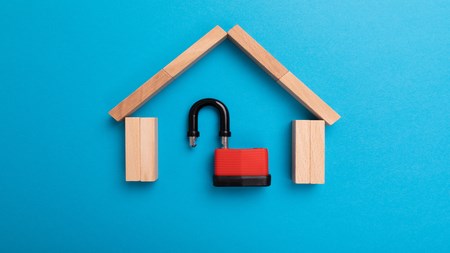Judging by a recent article in a national newspaper, it appears that Camps Bay not only appeals to those that have saved for a lifetime for the home of their dreams in an upmarket beautiful area. Squatters too, have realised the benefits of living in an area with the right views, the right neighbours and perhaps most important of all the right location – they just don’t want to pay for the privilege.
The UK has been having problems with squatters for years. These days the process of hijacking a property that does not belong to you appears to have become a form of art and societies aimed at helping those who literally want to help themselves to something that does not belong to them have become pretty commonplace. The alarming part of this whole equation is that British law decrees that once squatters have inhabited a property for longer than 12 years they acquire ownership of it. According to author Robert Neuwirth, an American author who has penned a number of books on the subject, there are approximately one billion squatters globally.
Squatting on a vacant piece of land has become pretty commonplace in South Africa and while many of the buildings in central Johannesburg house people who do not actually own them or pay rent, upmarket properties seem to be, for the most part, left alone. This, however, is not the case in Britain.
Guy Richie, the well-known film maker who was once married to Madonna, recently had a run in with squatters after he bought a £6m property in the exclusive area of Fitzrovia. The home which was undergoing renovations at the time was initially invaded by 15 people, who then refused to move, saying that they were setting up a “free school” on the premises. The police were called in but the squatters refused to vacate the premises and posted a note in one of the windows stating “legal warning. Take notice…that we live in this house, it is our home and we intend to stay here.” Richie eventually managed to have the squatters evicted, in part because the building was deemed unsafe for habitation. The floorboards were full of woodworm and there was asbestos in the building.
Strangely enough there appears to far more helpful advice for those that wish to invade someone else’s property in the UK than for the property owners themselves. While South African squatters may not have the facilities to guide them through an illegal squatting process yet, our laws certainly offer a fair level of protection to the individuals who regard empty properties as their own.
A six bedroom mansion in Camps Bay has already suffered under the hands of the squatters. The windows have been removed, fires have been lit inside the property and all the fittings have been stripped. Remarkably one of the squatters reportedly called the police to complain about another squatter’s activities. Smiley Bonfus, a homeless man from Burundi stated that he had to call in the authorities when one of the other squatters built fires so large that the fire brigade had to summoned said, "You cannot just have any guy staying in this nice place."
Apparently it is not the only home in the area to be targeted by illegal occupants. Gavin Oliver, the head of Cape Town’s Problem Building Unit, noted that other upmarket homes that have been appropriated by squatters in a number of upmarket suburbs that include Bishopscourt, Clifton, Gordon’s Bay and Somerset West.
The sad part of the story is that while squatters may destroy a property that they invade, it is still up to the owner of the property themselves to clean up the problem. Faced not only with the legal costs of removing these people, they also have to address and pay to rectify the problem once the illegal occupiers have left. One can only imagine what homeowners are faced with in these situations. Squatters are not tidy people and although they may be gone, other flatmates including rodents are sure to remain. The fact that the fittings have been removed undoubtedly means that the toilets are no longer in residence. The real challenges that some absentee homeowners will be forced to address may just be beginning.



